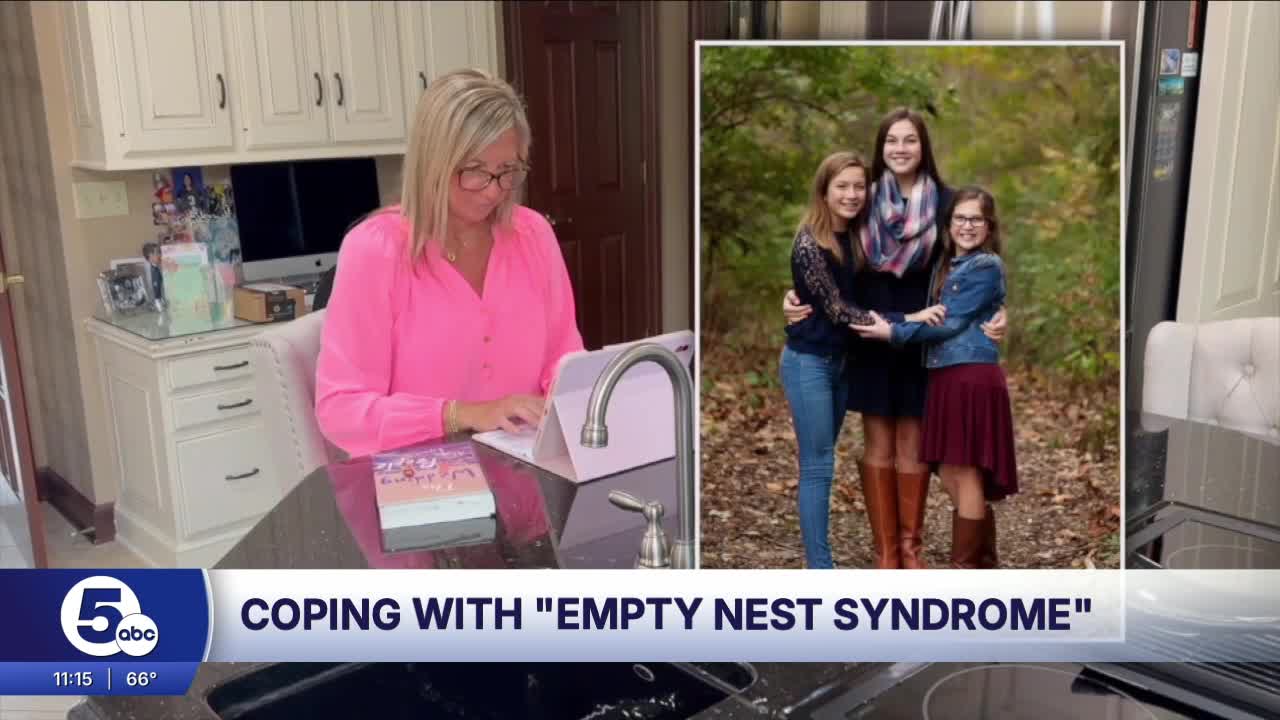CLEVELAND — For 21 years, Beth Sloan's life has centered around her three daughters. She traded her career to be a stay-at-home mom.
"I had three babies in four years, and from the start it’s just been nonstop chaos but great chaos," Sloan said.
School, kids' activities, and sporting events filled her calendar for the last two decades.
"Not only did our girls play sports in high school, but they also played travel sports, so we were busy during the week, we were gone on the weekends. There was really never any downtime," Sloan said.
All three of her girls are now at college. With the youngest leaving just a few weeks ago, life has changed.
"This next phase is going to be very different for me," Sloan said.
According to the CDC, 2007 now holds the record for the most babies born in a year in the United States. It edged out 1957, which was the peak of the baby boom years.
Those babies are now 18 years old. Many of them are on college campuses, leading to many colleges nationwide welcoming their largest freshman class in history. But it's also leading to something new for this generation of parents.
It's called empty nest syndrome.
"This is a term used to describe the adjustments parents experience when they drop a child off at college or the child moves out," said Susan Albers, a clinical psychologist with the Cleveland Clinic.
"In the current generation, we use the term helicopter parent to describe how parents are actively involved in the day-to-day life of their child. So, for many parents, they may be experiencing extreme levels of attachment and difficulty letting go. This is something that is pretty unique to parents of this generation," Albers said.
"I do think empty nest syndrome is a thing. I just think maybe for some people it’s harder than others,” said Megan McIntyre, a single mom whose husband died when her son Gavin was 5 years old. She recently dropped him off at college.
"Cried a little when I pulled away, but it was good because I knew he was ready," McIntyre said.
Albers said parents can feel a wide range of emotions, from sadness to grief to joy.
Here are some tips from the Cleveland Clinic for dealing with empty nest syndrome:
- Reframe the Story: Expanded Nest
Instead of calling it an empty nest, think of it as an expanded nest. Your love and influence now stretch beyond your home. Your child is still deeply connected to you, just living and growing in a different branch of the family tree. - Stay Involved in Their World Without Hovering Follow their college’s social media pages, read the school newsletter, or learn about upcoming campus events so you can ask thoughtful questions that invite connection.
- Mindfully Name Your Feelings Without Judgment
Allow yourself to say, “I feel sad” or “I feel proud” without labeling it as good or bad. Mindfully noticing your emotions helps you process them instead of pushing them away. - Create a Connection Ritual
Identify the best natural windows for communication, such as when your child is walking back from class, grabbing lunch, or winding down at night. Make those your check-in times. Short, predictable touchpoints feel supportive without being intrusive. - Focus on Gains, Not Just Gaps
Shift your attention from what is missing to what is opening up. Notice the time for hobbies, travel, or nurturing friendships. Ask yourself, “What can I do now that I could not before?” - Reinvest in Your Relationship
Use this time to deepen your partnership if you have one or reconnect with your own passions. Plan date nights, joint activities, or “just because” outings. - Celebrate Your Success
Remind yourself that this is a sign you have done your job well. Your child is independent, capable, and living the life you prepared them for. - Anchor Your Day with Small Joys
Sprinkle in tiny mindful pleasures such as morning coffee on the porch, an evening walk, or a favorite podcast. These help steady your emotions and create new routines. - Give Your Home a Fresh Start Touch
Rearrange a room, plant new flowers, or create a space for a hobby. This signals to your brain that life is moving forward in a positive way. - Find a Next Chapter Project
Whether it is learning a language, starting a side business, volunteering, or planning a dream trip, having a forward-focused goal can soften the sadness of the transition.





